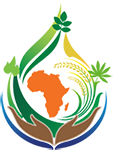| The project ‘Gender and the Legume Alliance: integrating multi-media communications approaches and input brokerage’ is implemented by CABI and N2Africa with grant support from the SAIRLA-programme. This five-year programme commissions research and facilitates multi-scale learning with regard to sustainable agricultural intensification (SAI). The project will support several N2Africa milestones related to feedback of the performance of dissemination models, the effectiveness of input supply and marketing systems, themes and models for women-specific dissemination campaigns and the effectiveness and efficiency of various D&D approaches. |  |
N2Africa is implemented through partnerships with value chain projects, so-called Public Private Partnerships (PPPs). This approach grew into a Legume Alliance, coordinated by CABI, whereby the value chain partners use different models for dissemination, input and output supply systems. The Gender and the Legume Alliance project will examine the performance of these models by looking at:
- The number of farmers practicing SAI;
- The results (i.e., increased yields or income, improved soil fertility) achieved by smallholder farmers due to SAI practices;
- The input market, output market and SAI information system’s continued capacity to provide appropriate inputs and information on a commercial or sustainable public basis;
- The extent to which disadvantaged or excluded groups (e.g. smallholder farmers, women, youth, low-income households) practice SAI and acquire related inputs and information services.
The project aims to address the research question: "What strategies are most effective for improving access to and capacity to use market, agronomy and other information and knowledge by poorer smallholders, especially women and youth, to achieve sustainable intensification?" The research project answers this question firstly by testing the hypotheses that different communication channels are more suited to different target groups (men, women and youth). And secondly, that input supply chains are a key entry point where input and information supply can be linked.
The research activities will be implemented in Tanzania and Ghana. Tanzania relies on the agricultural sector and legume cultivation is widespread, with over half of households growing at least one legume crop. Similarly, in Ghana legumes are important as both food staples and commercial crops.
In order to enhance legume value chains efficiency, it is important to understand:
- How information flows through the legume value chain between chain actors;
- How information flows within smallholder farming households;
- Where information is concentrated or deficient;
- How information flows could be changed to facilitate input supply from private sector parties and farmers in adopting new legume practices;
- What communication channels are more suited for different target groups.
The project will carry out action research, while implementing pilots of integrated communication campaign linked to an input brokerage system. Quantitative data will be collected through household surveys. These surveys will be complemented with Computer Aided Telephone Interviews (CATIs). CATIs are a well-tested methodology using native speakers as enumerators and questionnaires to render responses on subjects like input needs, awareness, practices, challenges and adoption. Furthermore, focus group discussions will be conducted at the community level and family interviews will capture the complexity of local gendered dynamics. iLogix, Kenya will manage the CATI-approach, whereas CABI leads on the evaluation design.
The research outputs are used to enhance the information flows along the value chain and help generating recommendations for decision-makers to foster a sustainable input supply. We will get back with follow up on how the outcomes are used and fitted in with N2Africa.
Edward Baars and Minke Stadler
